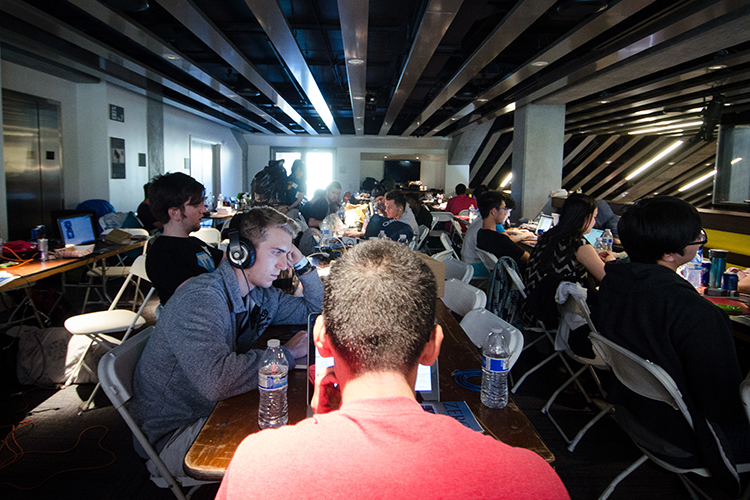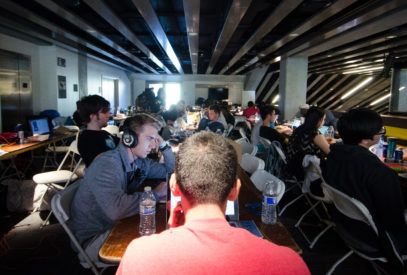Crowdsourcing approach to helping solve campus revenue issues
Crowdsourcing website Ideaction offers a platform for novel funding formulas

June 21, 2016
One of UC Berkeley’s newest programs is holding a contest for the public launch of Ideaction, a crowdsourcing website calling on students, alumni, faculty and staff to pitch their ideas about how to raise revenue for the university.
Prizes are up for grabs in the inaugural contest: Football tickets, Cal Performances passes and Cal Student Store gear will be doled out to the winners. The contest is designed to lure people into Ideaction, where anyone in the campus community or the general public can sign up and submit revenue-generating concepts, says William Rohrer, a Berkeley alum and community engagement specialist with the Ideaction team.
Ideaction “is one of many strategies being pursued by the university to combat the deficit,” Rohrer says. “We help units find and develop new resources for revenue… and take things from idea to implementation.”
The program is part of the New Revenue Initiatives, formed about two months under the vice chancellor for administration and finance.
Following years of cuts to UC system funding by the state of California, Berkeley faces perennial budget problems. Ideaction is one of many new programs designed to shore up against that gap, Rohrer said, and the contest is seen as a rubric for future experimental funding programs, Rohrer said.
“The Berkeley community is very broad and loyal to campus, and we want their help to solve this big problem,” Rohrer says. “They’re engineers, doctors, community organizers, artists… They know their community better than we do, and we’re looking for their ideas and feedback.”
All ideas are welcome, from half-baked to well-formed. Ideas proposed so far include a campus food-truck day, a maker camp and a valet parking service for visitors who don’t have access to campus parking. The initiative is focused exclusively on new revenue streams, not cost-cutting ideas.
After this first contest, there will be a variety of Ideaction campaigns to crowdsource, assess and develop ideas, Rohrer said. Some campaigns will focus on a particular subject or topic. Others will be centered around a contest or competition.
New Revenue Initiatives can also run private campaigns for academic or administrative units, Rohrer said, and they will help individual departments develop their own initiatives and ideas.
Part of the impetus for the idea was Rohrer’s own love for the university.
“Whenever I talk to my friends who are alums about our projects, they’re like, ‘Here’s what you should do,’” says Rohrer, who graduated from Berkeley in 2006 with a degree in political economy. “We want to capture all of those comments and that expertise.”
After contestants submit their ideas, they are posted to the Ideaction website, where the public can commented on them and rate them.
When the contest ends, the organizers will follow up with potential sponsors to see if funding and/or services are needed to further refine or assess the idea.
Ideaction is just the start of Berkeley’s innovative funding strategies, Rohrer says.
“We’re posing a simple question: What do you think Cal should be doing?”
To submit your idea to Ideaction, visit their website here.
